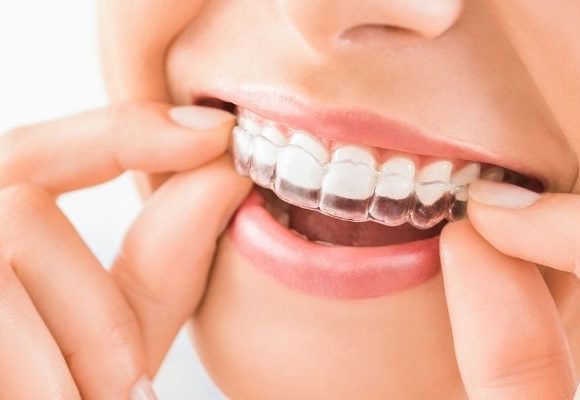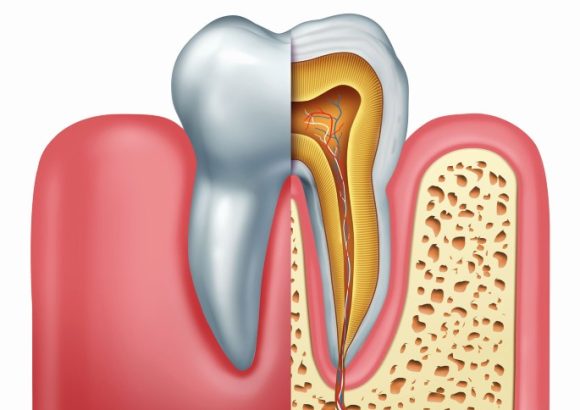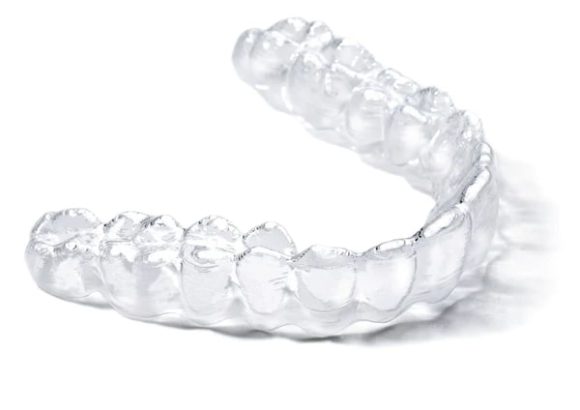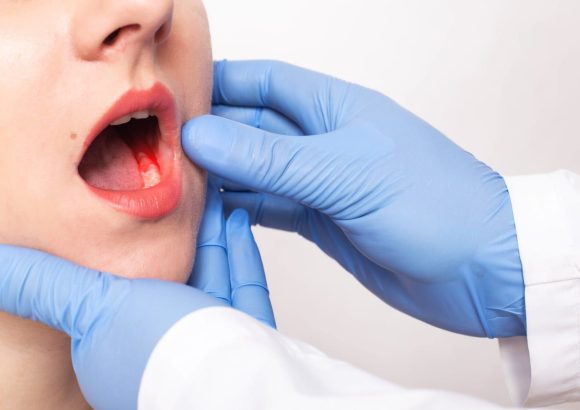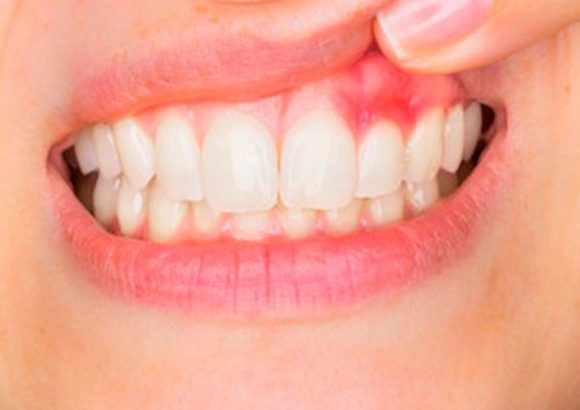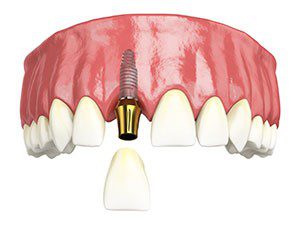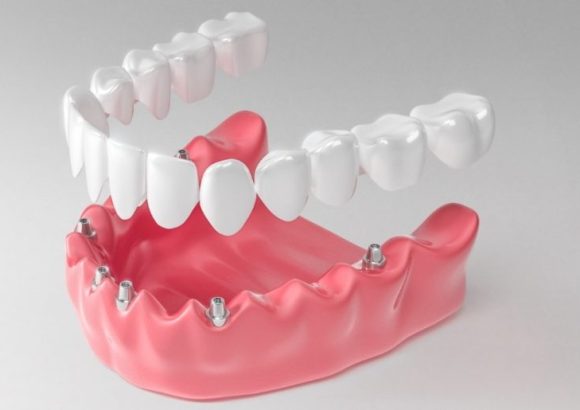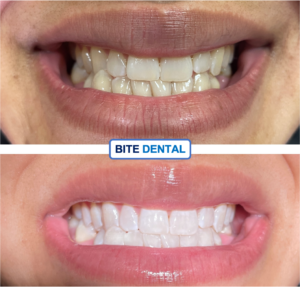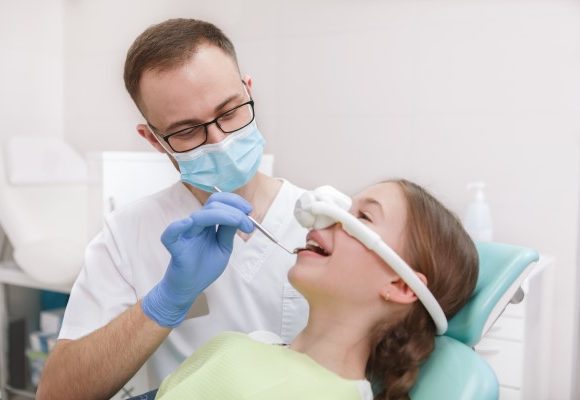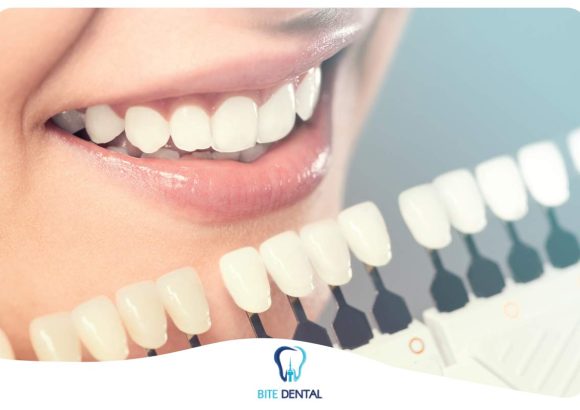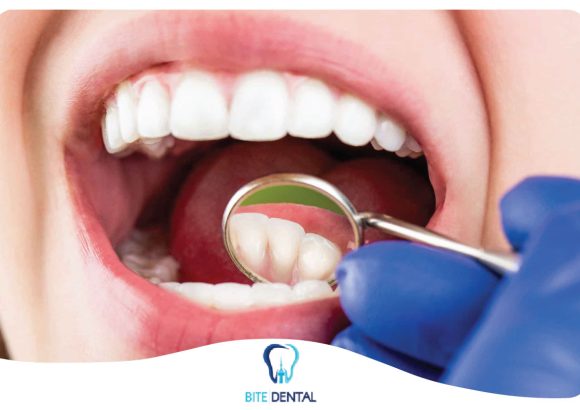Prosthodontics – is the branch of dentistry focused on making dental prostheses.
Dentures are a wonderful solution for people with some or all teeth missing. With dentures, a patient can restore their smile, and their confidence, too!
Depending on how many natural teeth you have lost, your dentist may recommend full dentures or partial dentures. If you have lost all your teeth, complete or full dentures can replace all your natural teeth. If you still have some natural teeth remaining, partial dentures may be the right option for you.
A full or partial denture is used to fill and strengthen sections of the mouth where teeth have been removed. Dentures act as a bridge to strengthen the mouth and bite. The dental care provider or prosthodontics specialist (dentist or denturist) will determine whether a full or partial denture is needed, depending on overall condition of the teeth, gums and jaw bone.
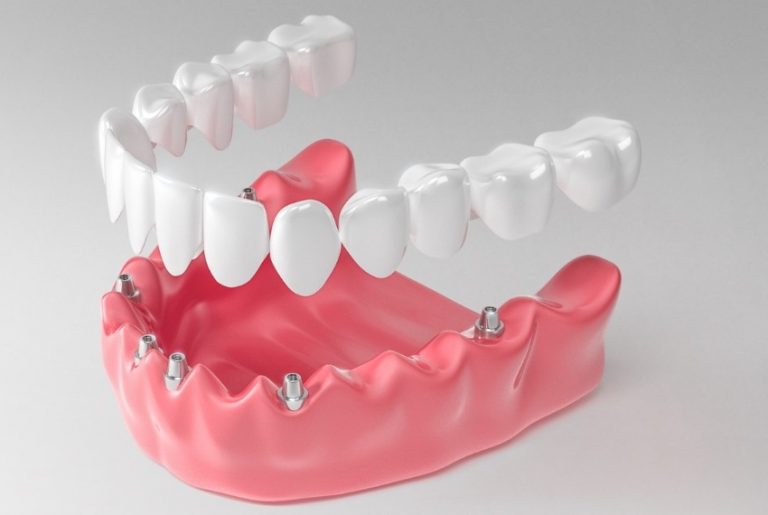
Fabrication of Partial & Full Dentures
The process of creating a denture is done through a series of molding or impression-taking that allows for the denture to be properly sized and fitted. The fabrication of the patient’s custom dentures occurs at a dental laboratory, and we will be working together with the technician until the dentures are complete. The final steps involve making any necessary final adjustments to the dentures to ensure that the fit and appearance is ideal for the patient.
Denture Repairs
It is not unusual for a patient’s dentures to require repair after wearing them for quite some time. Dentures may lose their ideal fit with use, which may cause them to become uncomfortable. Because they are not indestructible, dentures may even crack or break. Don’t worry, this is all fixable. If you’re experiencing problems with your dentures, book an appointment with us and we would be happy to repair your dentures for you.
Denture Relines
It is very important to the function and comfort of your denture for the pink base part to contact your gum ridge. If it does not, your denture will not fit your mouth as well as it could, causing instability and irritation. This instability can negatively affect speech and /or retention as your denture rocks on your ridge or actually dislodges. This irritation, in the form of sores, can result from the movement of a loose-fitting denture and trap food particles against your ridge underneath the denture due to a less than precise fit.
When your teeth have been removed, the bone in your jaw will recede over time, causing the denture to get loose and floppy. This bone loss will continue gradually over the rest of your life. As a result, the denture will need to be relined or remade every 3-5 years to keep it fitting properly.

